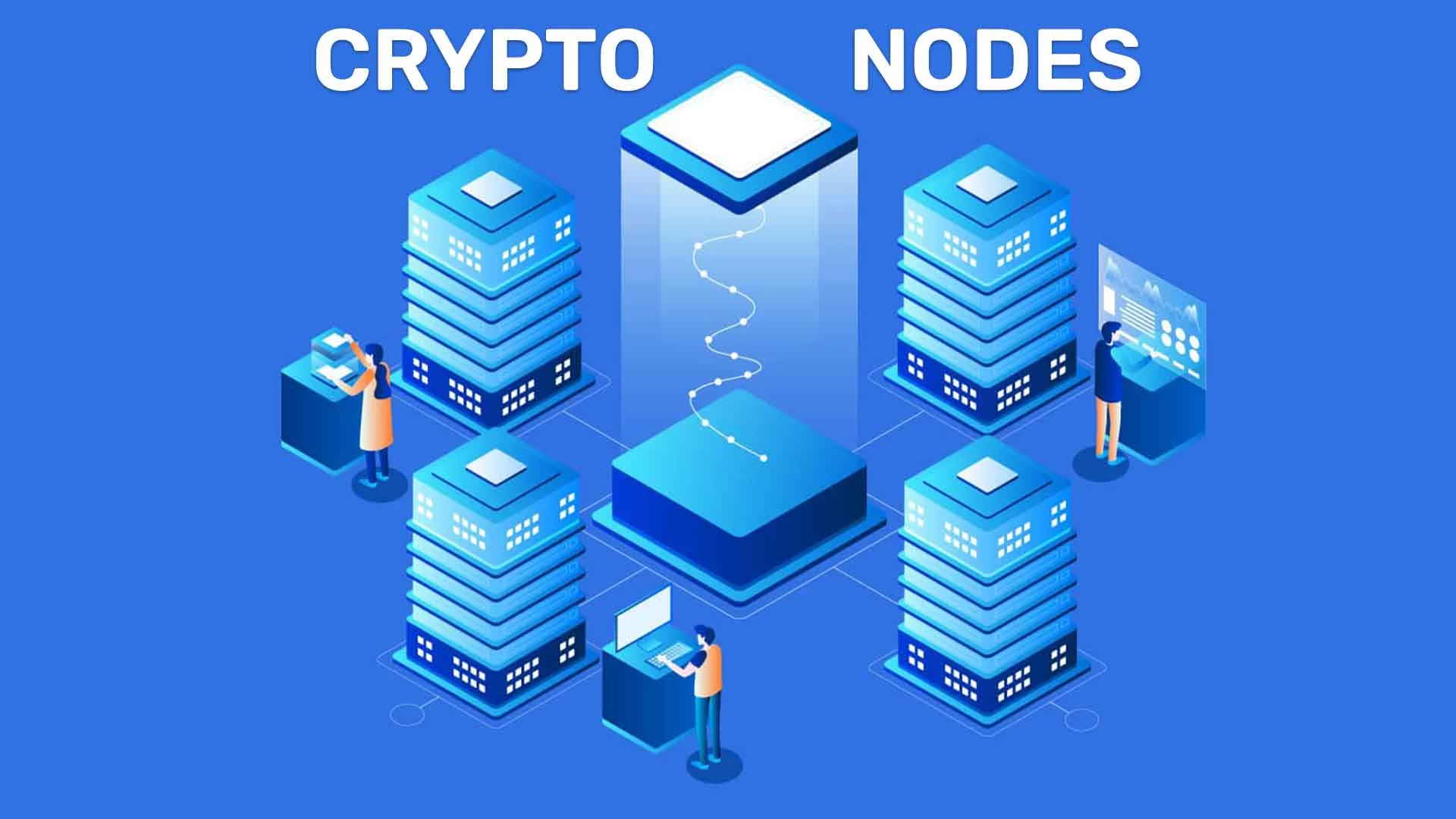Table of Contents
What Is a Crypto Node and Why Is It Important?
The world of cryptocurrency is filled with unique and often confusing terminology. If you’re new to the space, you might find it challenging to keep track of all the specific terms related to blockchain technology and its various sub-niches. One term that may leave you scratching your head is “crypto node.” What exactly is a crypto node, and why is this term important? In this article, we’ll explain what a crypto node is and why it’s an important part of any cryptocurrency network.

The cryptocurrency ecosystem is a decentralized network of nodes. In this system, no single entity or user has special privileges or control over others. The nodes are the individual users or servers that operate the software, store the blockchain, and relay information on the network. Anyone can set up a node to support the network, and running one is an excellent way for new users to get involved with a particular digital currency. There are several different types of crypto nodes. Node operators may also run more than one type of node at once. To understand what a crypto node is and why it’s important, let’s take a look at how the crypto ecosystem operates in general.
What is a Crypto Node?
A crypto node is an individual computer connected to a decentralized network. The node stores data and facilitate information transfer between connected nodes. Most nodes also generate or “mine” new coins or tokens as a reward for supporting the network. A crypto node is a single computer connected to a decentralized network. A decentralized network is controlled by many users or nodes, instead of a single computer or central authority. The nodes store data, pass information between each other and generate new units of a particular cryptocurrency as a reward for supporting the network.
Why Are Crypto Nodes Important?
Nodes store the blockchain, verify transactions, and maintain the decentralized network. Without nodes, the blockchain would exist only on the computers of miners. In this scenario, a computer crash, malicious attack, or government shutdown would lead to a breakdown in the entire network. There are several different types of nodes, each with a different role to play in the system. One type of node verifies transactions and generates new units of the token. Other nodes store the entire blockchain and relay information between nodes. The two main functions of nodes are storing and validating data. Mining nodes generate new coins as a reward for supporting the network. Other nodes pass information between miners, store the entire blockchain, and validate transactions.
Types of Crypto Nodes
Full Node: A full node is a type of crypto node that stores the entire blockchain. It has a complete record of all transactions, account balances, and token creation. Full nodes are crucial to a healthy decentralized network. They store the entire blockchain and can validate new transactions against existing data. If a new transaction doesn’t fit the pattern, the full node rejects it as invalid. Full nodes are the most important nodes in the network. They have a crucial auditing function and keep the network decentralized by rejecting invalid data. Full nodes are ideal for users with a high level of technical expertise. The full-node wallet requires enough free space to store the entire blockchain. Light Node: A light node is another type of crypto node that doesn’t store the entire blockchain. Instead, it connects to full nodes to retrieve information about the blockchain. Light nodes use full nodes to retrieve information about the blockchain. They don’t store the data on their computer, but they do connect to full nodes to receive information about new transactions and blocks. Light nodes are ideal for new users who want to get involved with a particular cryptocurrency but aren’t yet ready to run a full node. They are also useful for users who have limited storage space or bandwidth.
How to Set Up a Node
Before you can set up a node, you must first choose a particular token or coin to support. Choose a token that interests you and has a robust community. Make sure that the token has a healthy mining community with mining pools and mining software available. A node is a computer program that supports a decentralized network or blockchain. To set up a node, install the appropriate software on your computer. You can also run a node from a cloud server, which offers more computing power. If you set up a node from your computer, make sure that your computer has enough processing power, storage space, and internet bandwidth.
Key takeaway
A crypto node is a single computer connected to a decentralized network. A decentralized network is controlled by many users or nodes, instead of a single computer or central authority. Nodes store the blockchain, verify transactions, and maintain the decentralized network. Without nodes, the blockchain would exist only on the computers of miners. In this scenario, a computer crash, malicious attack, or government shutdown would lead to a breakdown in the entire network. There are several different types of nodes, each with a different role to play in the system. One type of node verifies transactions and generates new units of the token. Other nodes store the entire blockchain and relay information between nodes. The two main functions of nodes are storing and validating data. Mining nodes generate new coins as a reward for supporting the network. Other nodes pass information between miners, store the entire blockchain, and validate transactions. For best results, run a full node on a computer with a dedicated high-speed internet connection. It is challenging to run a node on a smartphone or tablet with a cellular connection.
